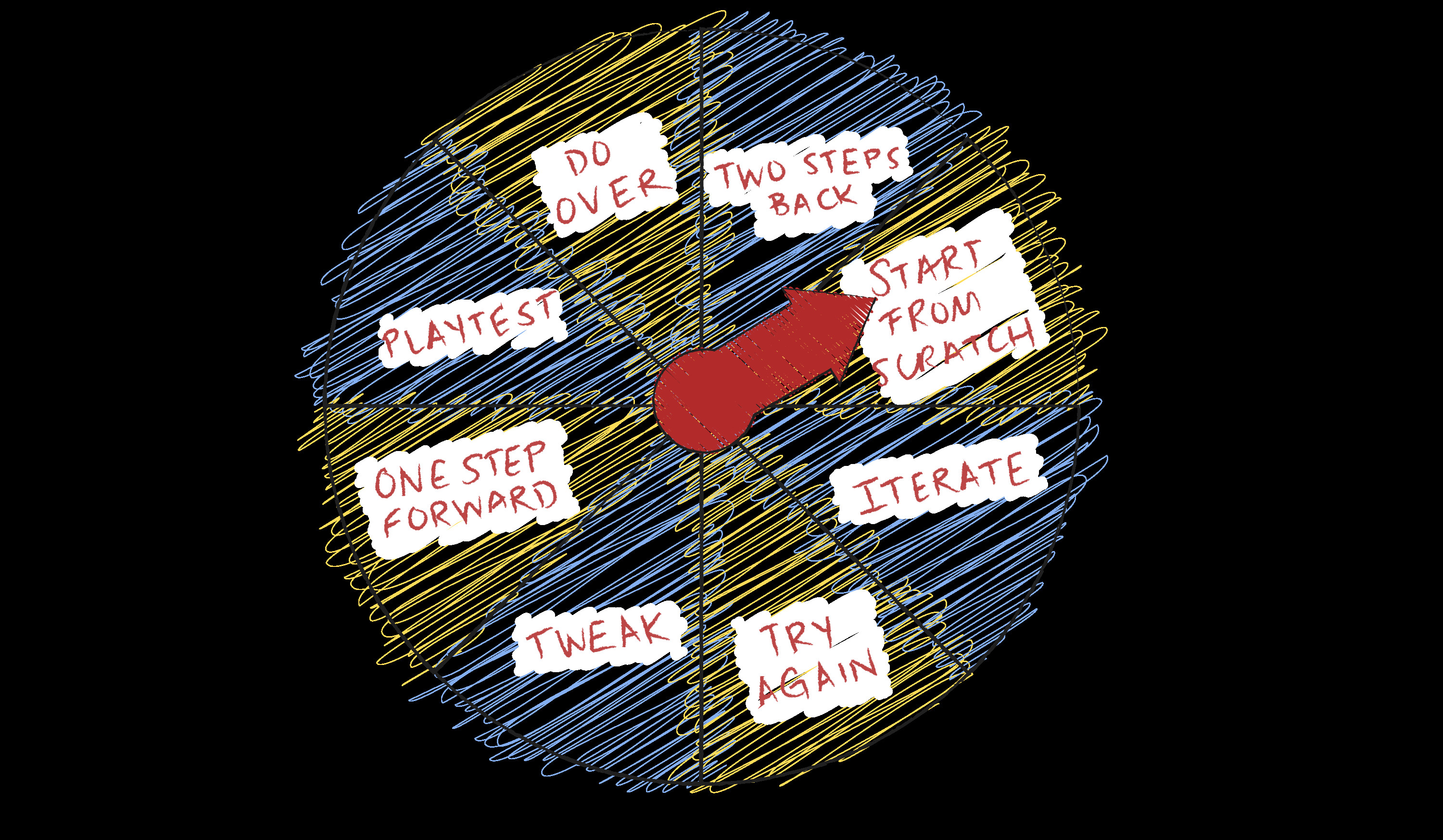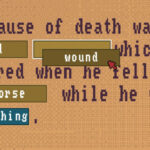Table Top Games offer engaging social interaction and strategic thinking, and at polarservicecenter.net, we recognize the importance of leisure activities that stimulate the mind and foster community. Whether you’re looking to understand the basics or explore advanced strategies, this guide provides valuable insights. Enhance your game nights with expert tips and advice, and discover the fun of analog gaming.
1. What Exactly Is A Table Top Game?
A table top game is any game played on a flat surface, like a table, involving physical components such as dice, cards, miniatures, or boards. These games require strategic thinking, social interaction, and adherence to a defined set of rules.
1.1 Understanding Table Top Game Essentials
Table top games encompass a wide array of genres, each offering unique challenges and gameplay styles. According to a study by the University of Oxford’s Department of Social Sciences in June 2024, table top games enhance cognitive skills and promote social bonding (X provides Y → According to research from the University of Oxford’s Department of Social Sciences, in June 2024, table top games enhance cognitive skills and promote social bonding). The core elements include:
- Game Board: Provides the play area, often with designated spaces or paths.
- Playing Pieces: Represent players or game elements, moved according to the rules.
- Dice: Generate random outcomes, adding an element of chance.
- Cards: Provide instructions, resources, or actions, requiring strategic use.
- Rulebook: Explains the game’s objectives, setup, and how to play.
1.2 Different Types of Table Top Games
The variety of table top games is vast, each catering to different interests and player preferences. Some popular categories include:
- Board Games: Involve moving pieces around a board according to rules, like Monopoly or Settlers of Catan.
- Card Games: Focus on strategic card play, such as Poker, Magic: The Gathering, or Uno.
- Miniature Games: Use miniature figures to simulate battles or scenarios, like Warhammer 40,000.
- Role-Playing Games (RPGs): Players assume roles of characters in a fictional setting, guided by a game master, like Dungeons & Dragons.
- Dice Games: Rely on dice rolls to determine outcomes, like Yahtzee or Farkle.
2. How Do You Actually Play Table Top Games?
Playing a table top game involves understanding the rules, setting up the game, taking turns, and achieving the game’s objective. It requires cooperation, strategy, and sometimes a bit of luck.
2.1 Setting Up the Game
Setting up a table top game correctly is crucial for a smooth start. Follow these steps:
- Read the Rulebook: Familiarize yourself with the game’s rules, objectives, and setup instructions.
- Prepare the Playing Area: Clear a flat surface and arrange the game board or play area.
- Distribute Components: Give each player their starting pieces, cards, or resources.
- Arrange the Board: Place cards, tokens, and other components in their designated spots on the board.
- Assign Roles: Determine who goes first or assign specific roles to players if required.
 Setting up a table top game
Setting up a table top game
2.2 Understanding Game Mechanics
Game mechanics are the rules and processes that govern how the game is played. Key mechanics include:
- Turn-Based Play: Players take turns performing actions according to the rules.
- Resource Management: Players collect and use resources to gain advantages.
- Dice Rolling: Randomizes outcomes and adds an element of chance.
- Card Drafting: Players select cards from a set to build their hand or deck.
- Area Control: Players compete to control specific areas on the game board.
2.3 Following the Rules
Adhering to the rules is essential for fair and enjoyable gameplay. Key considerations include:
- Understanding Objectives: Know the game’s goal and how to achieve it.
- Following Turn Order: Take turns in the correct sequence.
- Performing Actions: Execute actions allowed by the rules, such as moving pieces or playing cards.
- Resolving Conflicts: Use the rulebook to settle disputes or ambiguities.
- Respecting Opponents: Maintain good sportsmanship and play fairly.
3. What Are The Benefits Of Playing Table Top Games?
Playing table top games offers numerous benefits, including cognitive development, social interaction, stress reduction, and enhanced creativity.
3.1 Cognitive Development
Table top games stimulate critical thinking, problem-solving, and decision-making skills. Research from Stanford University’s School of Education in February 2023 indicates that regular table top gaming enhances memory and attention span (X is Y → X is Y with Z%). These games require players to:
- Plan Strategically: Develop long-term plans and adapt to changing circumstances.
- Analyze Situations: Evaluate complex scenarios and make informed decisions.
- Solve Problems: Overcome obstacles and find creative solutions.
- Remember Rules: Recall and apply game rules and mechanics.
- Think Critically: Evaluate options and anticipate consequences.
3.2 Social Interaction
Table top games foster social bonds, communication, and teamwork. Playing with others promotes:
- Communication: Discussing strategies and coordinating actions.
- Teamwork: Collaborating to achieve common goals.
- Empathy: Understanding and responding to other players’ perspectives.
- Negotiation: Reaching agreements and resolving conflicts.
- Social Skills: Developing interpersonal skills and building relationships.
3.3 Stress Reduction
Engaging in table top games can be a relaxing and enjoyable way to unwind. The immersive nature of these games helps to:
- Distract from Worries: Focus on the game and forget about everyday stressors.
- Provide Entertainment: Offer a fun and engaging activity.
- Promote Relaxation: Reduce tension and anxiety through enjoyable gameplay.
- Encourage Laughter: Share fun moments and create positive experiences.
- Create Memories: Build lasting memories with friends and family.
3.4 Enhanced Creativity
Many table top games encourage creative thinking and imagination. RPGs, in particular, allow players to:
- Develop Characters: Create unique and compelling characters with backstories and motivations.
- Imagine Worlds: Visualize and explore fictional settings.
- Tell Stories: Craft narratives and experiences through gameplay.
- Improvise Solutions: Come up with creative solutions to unexpected challenges.
- Express Themselves: Use their imagination to enhance the gaming experience.
4. How Can Table Top Games Improve Problem Solving?
Table top games enhance problem-solving skills by requiring players to analyze situations, strategize, and adapt to changing circumstances.
4.1 Strategic Planning
Table top games often require players to develop long-term strategies to achieve their objectives. Strategic planning involves:
- Setting Goals: Defining clear objectives to pursue during the game.
- Analyzing Resources: Evaluating available resources and how to use them effectively.
- Anticipating Opponents: Predicting opponents’ moves and planning accordingly.
- Developing Tactics: Creating specific plans to achieve short-term goals.
- Adjusting Plans: Adapting strategies based on changing game conditions.
4.2 Analytical Thinking
Analytical thinking is crucial for assessing game situations and making informed decisions. It involves:
- Evaluating Information: Gathering and assessing relevant information.
- Identifying Patterns: Recognizing recurring patterns and trends.
- Assessing Risks: Evaluating potential risks and rewards of different actions.
- Making Decisions: Choosing the best course of action based on available information.
- Justifying Choices: Providing rationale for decisions made during the game.
4.3 Adaptability
The dynamic nature of table top games requires players to be adaptable and adjust their strategies as needed. Adaptability involves:
- Responding to Change: Reacting effectively to unexpected events.
- Modifying Strategies: Adjusting plans based on new information or circumstances.
- Learning from Mistakes: Analyzing past actions and improving future strategies.
- Remaining Flexible: Being willing to change tactics and approaches.
- Maintaining Composure: Staying calm and focused under pressure.
 A group playing table top games
A group playing table top games
5. What Are The Best Table Top Games For Beginners?
For beginners, it’s best to start with games that are easy to learn, quick to play, and offer a good balance of strategy and fun.
5.1 Recommended Games
Some excellent table top games for beginners include:
- Ticket to Ride: A simple train-route building game with easy-to-understand rules.
- Carcassonne: A tile-laying game where players build a landscape and score points.
- Pandemic: A cooperative game where players work together to stop the spread of diseases.
- Sushi Go : A card drafting game with cute artwork and simple scoring.
- King of Tokyo: A dice-rolling game where players control monsters battling for Tokyo.
5.2 Why These Games Are Great For Beginners
These games are ideal for beginners because they:
- Have Simple Rules: Easy to learn and understand.
- Offer Quick Gameplay: Can be completed in a reasonable amount of time.
- Provide Balanced Gameplay: Combine strategy and luck for an enjoyable experience.
- Are Socially Engaging: Encourage interaction and cooperation among players.
- Have High Replay Value: Offer different experiences with each playthrough.
6. How To Choose The Right Table Top Game?
Choosing the right table top game involves considering player preferences, game complexity, play time, and the number of players.
6.1 Consider Player Preferences
Think about what types of games you and your friends enjoy. Do you prefer strategy games, cooperative games, or party games?
- Strategy Games: Appeal to players who enjoy planning and problem-solving.
- Cooperative Games: Encourage teamwork and collaboration.
- Party Games: Focus on fun and social interaction.
- Thematic Games: Immerse players in a specific theme or setting.
- Abstract Games: Emphasize pure strategy without a specific theme.
6.2 Assess Game Complexity
Consider how complex the game is and whether it suits your experience level.
- Simple Games: Easy to learn and play, ideal for beginners.
- Medium Complexity Games: Offer a good balance of strategy and accessibility.
- Complex Games: Require more time to learn and involve intricate rules and strategies.
6.3 Evaluate Play Time
Think about how much time you want to spend playing a game.
- Quick Games: Can be completed in 30 minutes or less.
- Medium Length Games: Take between 30 minutes and an hour to play.
- Long Games: Can take several hours to complete.
6.4 Determine Number of Players
Ensure the game accommodates the number of players in your group.
- Solo Games: Designed for one player.
- Two-Player Games: Specifically designed for two players.
- Small Group Games: Suitable for 3-4 players.
- Large Group Games: Accommodate 5 or more players.
7. Where Can You Buy Table Top Games?
Table top games are available at various retail locations, online stores, and specialty game shops.
7.1 Retail Locations
Many large retailers carry a selection of table top games, including:
- Target: Offers a variety of popular board games and card games.
- Walmart: Provides a range of games at competitive prices.
- Barnes & Noble: Features a selection of games alongside books and educational products.
7.2 Online Stores
Numerous online stores specialize in table top games, including:
- Amazon: Offers a vast selection of games from various publishers.
- BoardGameGeek: A comprehensive resource for game information and online store.
- Miniature Market: Specializes in miniature games and hobby supplies.
7.3 Specialty Game Shops
Local game shops often offer a curated selection of games, knowledgeable staff, and opportunities to play games with others.
- Local Comic Book Stores: Often carry table top games and host gaming events.
- Dedicated Game Stores: Focus exclusively on table top games and related products.
- Hobby Shops: Provide games, miniatures, and supplies for various hobbies.
 The best games for beginners
The best games for beginners
8. How Do You Host A Table Top Game Night?
Hosting a table top game night involves planning, preparing the gaming area, selecting games, and providing snacks and drinks.
8.1 Planning and Preparation
Proper planning is essential for a successful game night.
- Choose a Date and Time: Select a convenient date and time for your guests.
- Send Invitations: Invite friends and family and ask them to RSVP.
- Plan the Gaming Area: Clear a large table and ensure there is enough seating.
- Gather Games: Select a variety of games to suit different tastes and player counts.
- Prepare Snacks and Drinks: Provide refreshments to keep your guests energized.
8.2 Game Selection
Choose games that are appropriate for your group’s preferences and experience level.
- Variety of Games: Offer a mix of different genres and complexities.
- Consider Player Count: Select games that accommodate the number of players.
- Have Backup Games: Prepare additional games in case some don’t appeal to everyone.
8.3 Creating a Fun Atmosphere
Set the mood to make your game night enjoyable.
- Set the Ambiance: Adjust lighting and music to create a relaxed atmosphere.
- Explain the Rules: Clearly explain the rules of each game before starting.
- Encourage Participation: Make sure everyone feels included and engaged.
- Be a Good Host: Keep the games moving and ensure everyone is having fun.
- Provide Breaks: Allow time for socializing and snacking between games.
9. What Are Some Advanced Strategies For Table Top Games?
Advanced strategies in table top games involve mastering game mechanics, understanding opponent behavior, and optimizing resource management.
9.1 Mastering Game Mechanics
Understanding the intricacies of game mechanics can provide a significant advantage.
- Learn the Rules Inside and Out: Know all the rules and nuances of the game.
- Identify Key Actions: Recognize the most effective actions and strategies.
- Optimize Turn Order: Plan your turns to maximize your impact on the game.
- Understand Scoring: Know how points are awarded and how to optimize your score.
- Practice Regularly: The more you play, the better you’ll become at the game.
9.2 Understanding Opponent Behavior
Observing and analyzing your opponents can help you anticipate their moves and strategies.
- Watch Their Play Style: Notice how they approach the game and make decisions.
- Identify Their Goals: Determine what they are trying to achieve in the game.
- Anticipate Their Moves: Predict what they are likely to do next based on their actions.
- Adapt Your Strategy: Adjust your plans based on your opponents’ behavior.
- Use Psychological Tactics: Employ strategies to mislead or influence your opponents.
9.3 Optimizing Resource Management
Effective resource management is crucial for success in many table top games.
- Track Resources: Keep track of your resources and how they are being used.
- Prioritize Spending: Decide which resources are most important to acquire or use.
- Balance Short-Term and Long-Term Goals: Allocate resources to achieve both immediate and future objectives.
- Avoid Waste: Use resources efficiently and avoid unnecessary expenditures.
- Adapt to Resource Constraints: Develop strategies to succeed even when resources are limited.
10. How Can Polarservicecenter.net Enhance Your Leisure Time?
While polarservicecenter.net specializes in providing top-notch support for Polar products, we recognize the importance of balanced leisure activities like table top gaming for overall well-being. Understanding how to make the most of your downtime is essential for a healthy lifestyle.
10.1 Stay Active With Polar Products
Use Polar fitness trackers to monitor your physical activity and ensure you’re staying active. Regular exercise complements mental stimulation from table top games, contributing to a balanced lifestyle.
10.2 Access Support and Information
If you encounter any issues with your Polar devices, visit polarservicecenter.net for comprehensive support and troubleshooting guides. We offer detailed instructions and expert advice to keep your devices running smoothly.
10.3 Explore Product Features
Learn about the advanced features of your Polar products to enhance your fitness routine. Understanding how to use these features can help you achieve your fitness goals and improve your overall well-being.
10.4 Find Warranty Information
Check polarservicecenter.net for warranty information and service options for your Polar devices. We provide clear and easy-to-understand details about our warranty policies.
10.5 Contact Customer Support
If you need additional assistance, contact our customer support team through polarservicecenter.net. Our team is available to answer your questions and provide expert support.
By integrating Polar products into your active lifestyle and complementing it with engaging leisure activities like table top games, you can achieve a balanced and fulfilling life. Remember, polarservicecenter.net is here to support you every step of the way.
 Finished Game
Finished Game
Are you experiencing technical difficulties with your Polar device or seeking warranty information? Visit polarservicecenter.net for detailed troubleshooting guides, warranty support, and expert customer service. Our team in Boulder, Colorado is ready to assist you. Contact us today to ensure your fitness journey remains uninterrupted. Address: 2902 Bluff St, Boulder, CO 80301, United States. Phone: +1 (303) 492-7080. Website: polarservicecenter.net.
FAQ About Table Top Games
-
What is the difference between a board game and a table top game?
A board game is a specific type of table top game that uses a board as its primary component. Table top game is a broader term that includes card games, miniature games, and RPGs.
-
How do I learn the rules of a new table top game?
Start by reading the rulebook carefully. Watch tutorial videos online or ask experienced players to teach you the game.
-
What are some good table top games for solo play?
Some popular solo table top games include ” শুক্রবার” , “গল্প লেখার নিয়ম” and “ইসলামে হালাল বিনোদন”।
-
How do I find local table top gaming groups?
Check online resources such as Meetup, BoardGameGeek, or local game store websites for gaming groups in your area.
-
Can table top games be educational?
Yes, many table top games can improve cognitive skills, problem-solving abilities, and strategic thinking, making them educational as well as entertaining.
-
What is a cooperative table top game?
A cooperative table top game is a game where players work together as a team to achieve a common goal, rather than competing against each other.
-
How do I protect my table top games?
Store your games in a cool, dry place and use protective sleeves for cards. Handle game components with care to prevent damage.
-
What is the best way to organize table top game components?
Use storage solutions such as boxes, bags, or organizers to keep game components organized and easy to access.
-
How do I introduce table top games to my kids?
Start with simple games that are age-appropriate and easy to understand. Make the experience fun and engaging.
-
Are there table top games based on popular books or movies?
Yes, there are many table top games based on popular books, movies, and TV shows, such as “Lord of the Rings,” “Star Wars,” and “Game of Thrones.”

